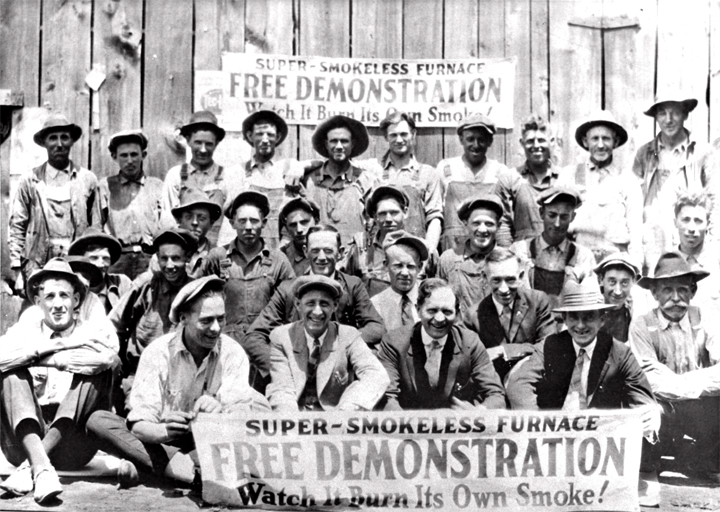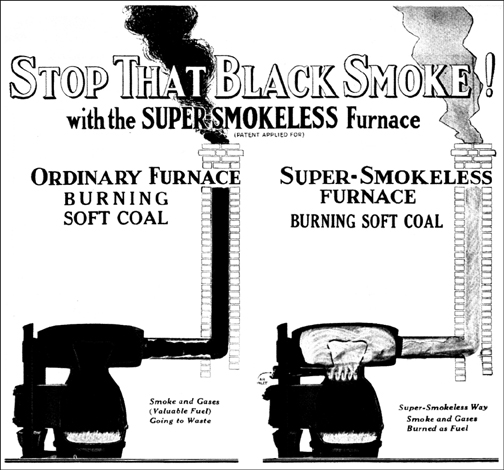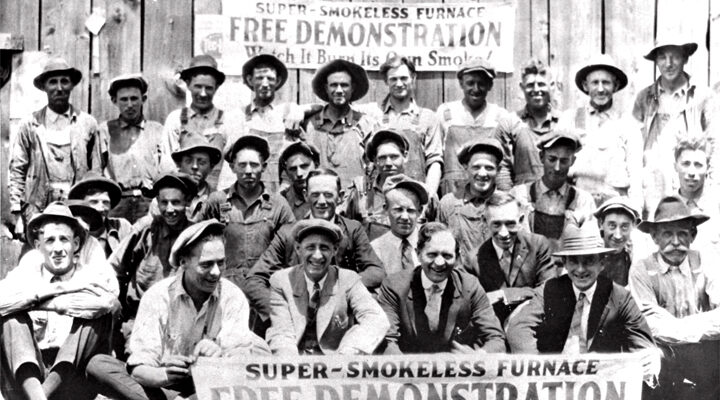The late Sue Carr Eckstein once shared with me a massive scrapbook that had belonged to her father, Paul Carr. She also gave me a photograph of Carr Brothers employees that accompanies this column. My research dates the photo to about 1922. The business, owned by brothers, Paul and Sam Carr, was located at Oak and Millard streets. Earlier publications list it at First Avenue and Millard Street, but that was before Oak Street was renamed from its former Carnegie street designation.

My grandpa, Earl B. Cox, is shown in the second row in the center (hatless and wearing a suit). Paul Carr is on the front row, fourth from the left. For years, the owners gave their employees a $20 gold piece as a Christmas gift. Another present for men was a necktie. I have one of the latter that is permanently retired and resting comfortably in my closet.
City directories provide a glimpse of the business, which began operation about 1910 as a coal supplier. Three years later, its product line was expanded to include fuel wood, ice and lumber. By 1915, the firm had dropped wood.
Circa 1922, a representative from the Utica Heater Company of New York came to Johnson City at the invitation of the Carr brothers to promote their highly publicized “Super-Smokeless Furnace.” The public was invited to attend a demonstration of it on a W. Market Street vacant lot that was adjacent the old Arcade Building. The space was frequently used during the city’s early years for numerous open air and tent performances.

According to the agent: “The Utica furnace consumes all gases and volatile matter that would ordinarily escape in the form of smoke by combining them with air heated to about 1,200 degrees Fahrenheit. No smoke comes from the furnace and the available heat emitting from the coal is increased about 60 percent, ensuring absolute cleanliness and a 25-30 percent reduction in coal consumption.”
By 1928, the company had stopped selling ice and was promoting “lumber, building materials and coal.”
A full-page flyer from a 1930 Johnson City Chronicle and Staff-News stated: “Carr Brothers – Home Builders – Wholesale and Retail Dealers in Lumber, Building Material and Coal – Price Quality and Service Have Built the Business into One of the Largest in Its Line in the Entire Appalachian Section of Tennessee and Virginia.”
The workforce that year included Paul Carr (general manager), Sam Carr (assistant manager), Earl B. Cox (collection, salesman), Ralph B. Carr (salesman), H.G. Taylor (salesman), J.F. Venable (salesman), C.G. Taylor (collection, salesman), Guy S. Carr (real estate, rental), W.P. Crowley (real estate, rental), N.K. Humphrey (shop superintendent), Paul Emmert (bookkeeper), Mrs. R.O. Wilcox (assistant bookkeeper), Mrs. Ana Eakin (stenographer), Miss Edna Gobble (shipping) and Phil Carr (messenger).
A 1941 brochure gave the company’s address as Oak Street at the Southern Railroad tracks, although the actual location was unchanged. The railroad conveniently ran in close proximity to their property, which is likely why they purchased this parcel of land.
In 1948, the management team consisted of Paul Carr (president/treasurer), Sam Carr (vice president/secretary) and Phil Carr (vice president). By then, the business was more descriptive: paint, lumber, roofing, lime, plaster, cement and coal. Several large coal yards and warehouses occupied the property. Also, three next generation of Carr brothers had made their way into the business world occupying executive positions at 7 Up Bottling Company: Guy (president), Ralph (vice president/treasurer) and Phil (secretary, in addition to his Carr Brothers position).
Around 1963, Carr Brothers closed its doors forever, having completed a 53-year successful downtown run. If anyone can identify the other personnel in my column photo, please send me a note.
